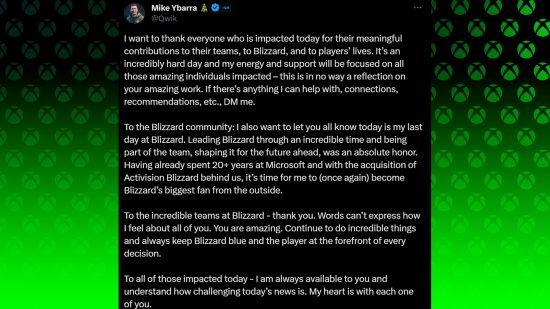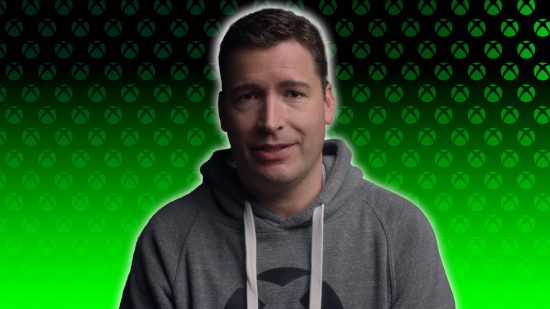Microsoft is massively restructuring its workforce behind the scenes, as the Xbox magnate looks to cut nearly 2,000 jobs. This comes after the enormous Microsoft-Activision merger, which concluded in October last year. Now, another disruption to Microsoft’s output is developing, as Blizzard Entertainment CEO Mike Ybarra announces his resignation from his post.
The confirmation of Ybarra’s decision to leave Diablo 4 studio Blizzard Entertainment is disclosed in a new statement, in which Ybarra offers his support to fellow Microsoft employees. “I want to thank everyone who is impacted today for their meaningful contributions to their teams, to Blizzard, and to players’ lives,” Ybarra says in a social media post. Additionally, Ybarra explains that “it’s an incredibly hard day and my energy and support will be focused on all those amazing individuals impacted.”
Reflecting on his time at Blizzard Entertainment, which saw some of the best FPS games like Overwatch produced, Ybarra adds the following: “Leading Blizzard through an incredible time and being part of the team, shaping it for the future ahead, was an absolute honor. Having already spent 20+ years at Microsoft and with the acquisition of Activision Blizzard behind us, it’s time for me to (once again) become Blizzard’s biggest fan from the outside.” 
Alongside Ybarra’s exit from the studio, also comes the cancellation of a brand-new survival game for Xbox. The untitled new Xbox game was initially announced in 2022, but now Xbox Studios head Matt Booty expresses in a staff memo, via The Verge, that “Blizzard [Entertainment] is ending development on its survival game project” as it shifts team members around to work on “several promising new projects.”
Elsewhere, Microsoft Gaming CEO Phil Spencer says in a separate employee statement, provided by IGN, that “we are grateful for all of the creativity, passion, and dedication they have brought to our games, our players, and our colleagues.”

Microsoft’s incorporation of Activision into its portfolio is one of the biggest acquisitions in gaming history. Valued at $68.7 billion, the merger relies on the help of Ubisoft to appease the Competition and Markets Authority.
